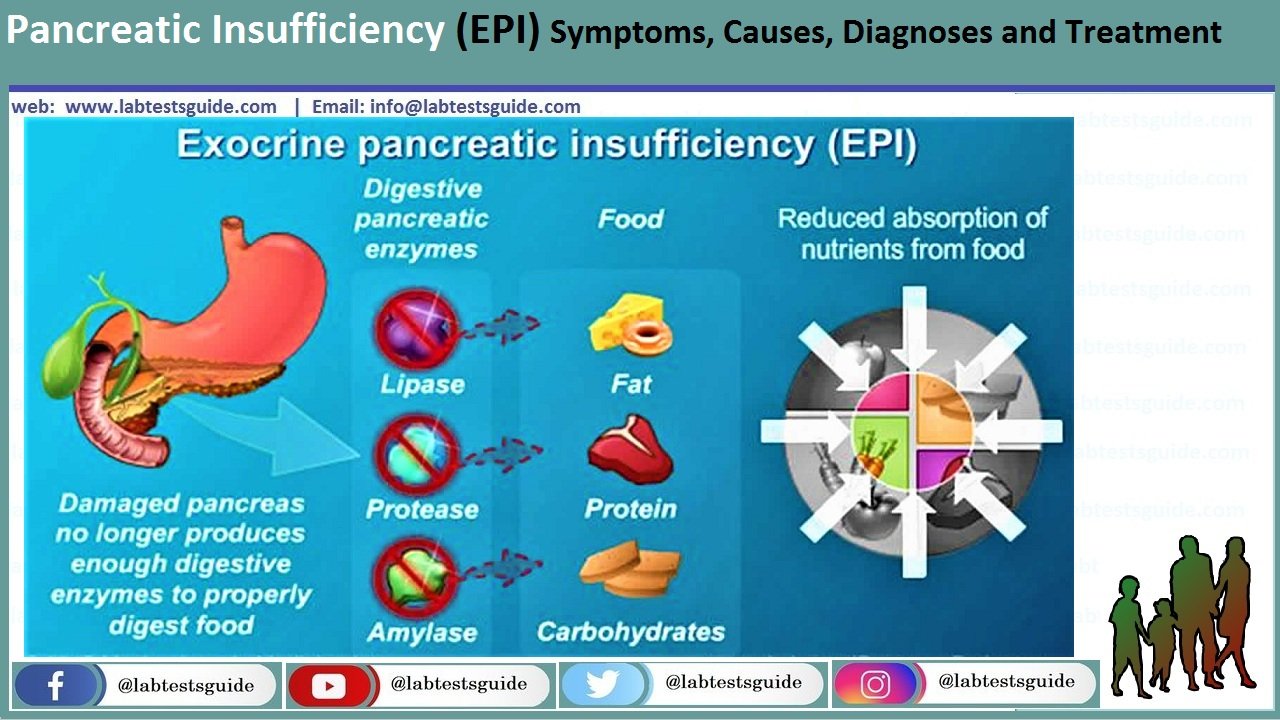
Pancreatic insufficiency (EPI) is a condition that occurs when the pancreas does not produce enough specific enzyme that the body uses to digest food in the small intestine.

The pancreas is a glandular organ. That means that the pancreas secretes juices that maintain proper body function. The pancreas produces both enzymes and hormones.
Also Known As: Exocrine pancreatic insufficiency, EPI
Signs and Symptoms :
Symptoms may include:
- abdominal pain and tenderness
- loss of appetite
- feelings of fullness
- weight loss and diarrhea
Pancreatic insufficiency may also cause bone pain and muscle cramps.
What causes pancreatic insufficiency?
When the pancreas becomes damaged, pancreatic enzymes are not produced, and malabsorption results. Malabsorption is the result of food that is not properly converted into usable energy by the digestive system.
The pancreas may become damaged by:
- recurring inflammation of the pancreas
- previous pancreatic surgery
- it is rarely caused by cancer
Additionally, there are genetic factors that may cause damage to the pancreas:
- cystic fibrosis, a disease damages glandular organs by creating mucus that impairs their function
- Shwachman-Diamond Syndrome, a rare autosomal recessive disorder
Diagnosis:
Simple investigations used to diagnose chronic pancreatitis include:
- an abdominal X-ray (which can show calcifications in the pancreas)
- stools collected and analyzed for high fat content
- Stool Elastase
- CT scan
- MRI scan
- endoscopic ultrasound
Treatment of pancreatic insufficiency
When chronic pancreatitis is discovered, attempts are made to remove causative factors.
- reduce high blood fat (triglyceride) levels
- reduce alcohol use or abuse
- stimulate pancreatic duct drainage using dilation, or stents
- surgery
There are reports of the use of antioxidants (selenium, vitamin A, vitamin C, and vitamin E) to reduce ongoing inflammation.
Related Articles:
RELATED POSTS
View all
